Chatting with him, seeing him drive a motorbike skillfully in Hanoi’s streets or eating mắm tôm (shrimp paste), no one can image he is a foreigner.
With a standard Hanoian accent, using proper youth slang in a warm manly voice, Yoon Kyu Hee can impress any local girl with his profound knowledge of Vietnamese culture.
It’s nothing strange for the 26-year-old man who has spent 20 years living and studying in Vietnam.
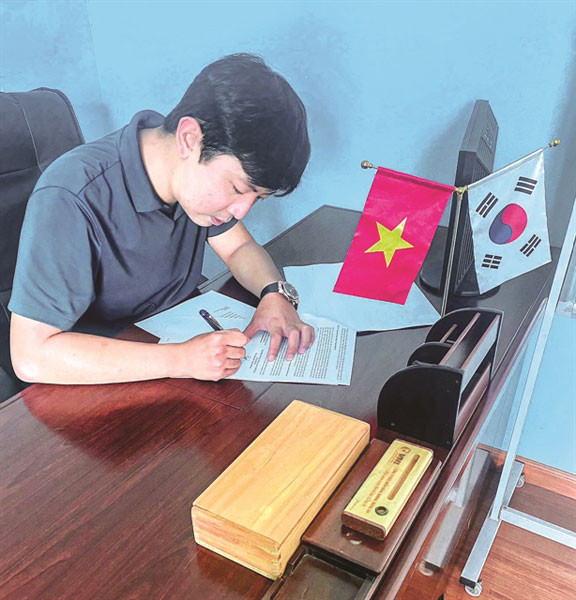
Parents’ choice
In 1993, right after Vietnam and South Korea officially established diplomatic ties, Yoon’s father, Yoon Sang II, an energetic businessman, came to Vietnam to seek a chance to do business. He then worked on a technical project to produce a battery for Tia Sang Battery Joint Stock Company under the Viet Nam Chemicals Corporation in Hai Phong.
He first intended to stay there for six months. But then, he realised that the country was a fertile land for developing batteries, and he decided to establish LAVA Battery Ltd Company in Hanoi.
Yoon Kyu Hee then accompanied his parents to Hanoi in 1999, where he studied from preschool to high school. He then studied at the Vietnamese Language Faculty in Busan Foreign Languages University and did his MA degree at the Ha Noi National University of Education's Literature Faculty.
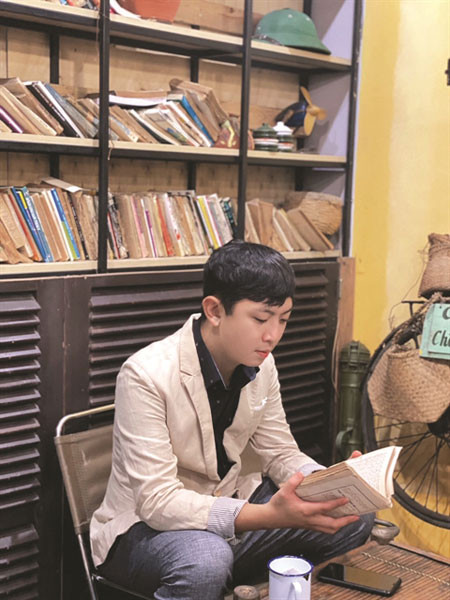
A few years ago, his parents returned to South Korea, letting him manage his mother’s audit company.
“Vietnamese people have a good sense of humour and affections,” he told the Việt Nam News. “I’m very familiar with life here. So I don’t find any difficulties living here alone at all.”
Hee said he used to help his mother at work with translations, so he is familiar with the management of the company.
“My mom supported me a little bit at the beginning, then she gradually let me control the situation myself,’’ Hee said. “I’m proud to say that I inherited the company from my mom with only 30 staff, nothing else.”
Hee said besides learning from his mother’s experience, he has his own way of approaching and keeping customers.
His customers now include companies from South Korea, Japan, China and Europe.
“I will surely stay in Vietnam for 20 to 30 more years as the country is among the top markets, the politics is stable and the economy is developing,” he said.
Warm land
Hee said he still keeps close contact with dozens of his Vietnamese friends who share the same schools and university.
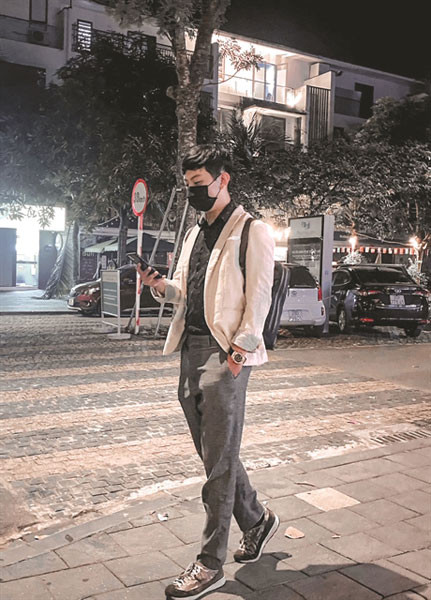
“I think Vietnamese people have high collective spirit,” he said. “In contrast, South Korean young people now live for themselves more than community.
“Vietnamese young people are energetic,” he noted. “They care much for others. They can act very strongly for their purposes.”
Hee said his ideal girlfriend should be pretty like beauty queens or models, should be tall with long hair, someone that he can share sorrows and tasks at work.
Hee confessed he has dated with several girls but then departed.
He can choose a Vietnamese girl if she is the right person.
“The speed in life in Vietnam is slower than that in my homeland but Vietnamese people still know what to do. I feel more happy and free here, where people are closer to one another,” he stressed.
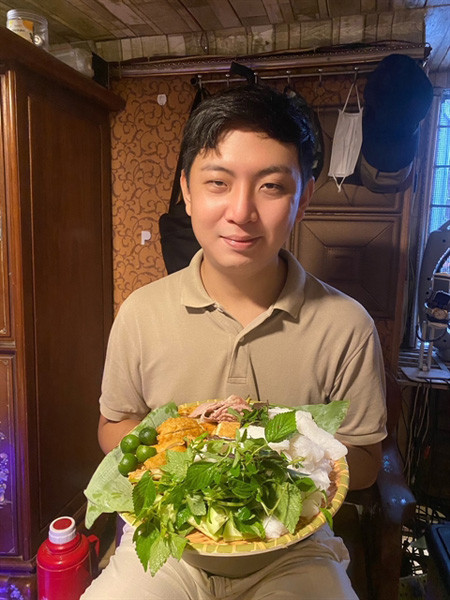
Hee is especially a fan of Vietnamese food. He likes eating bún đậu mắm tôm (vermicelli with fried tofu and shrimp paste).
“Not may people like bún đậu mắm tôm, but I can eat the dish all day and always like it,” he said. “It’s interesting the way that shrimp paste is added on vermicelli, I’ll think I like it most. But then, when dipping deep fried tofu on the shrimp paste, I change my mind: oh no, I like fried tofu most.”
"Then when I eat chả cốm (fried minced pork with young rice), I think: I like chả cốm most! But when I bite nem (fried spring roll), I think I like nem most. In general, when I eat a dish, I’ll think I like that dish most,” he said.
Every time a relative or friend from South Korea visits Vietnam, Hee invites them to eat bún đậu mắm tôm. Most of them would find the paste's smell strong and unpleasant and do not dare to eat it. They would use fish sauce with garlic and chilly instead.
But Hee likes vermicelli and fried tofu with lots of shrimp paste.
“The transition between the taste of shrimp paste and the taste of vermicelli is very unique,” he said. “It’s a little sweet, a little salty, with the strong typical smell of shrimp and a little fatty from the oil. It’s delicious. The restaurant, where I often eat the dish, offers me a big bowl of shrimp paste so that I don’t have to ask for more."
Hee said during the time he returned home for military duty between 2018 and 2020, and between 2020 to July 2021 when he could not come to Vietnam due to the pandemic, he missed the food a lot.
“Sometimes, I missed bún đậu mắm tôm but there is no place offering such a magic dish,” he recalled.
The South Korean businessman suggested that Vietnam can draw more tourists by implementing a more concrete plan for entertainment areas, tourism sites, culinary art and promoting luxurious tourism products such as golf tours, which will be a “gold mine” for businessmen to stay a longer time.
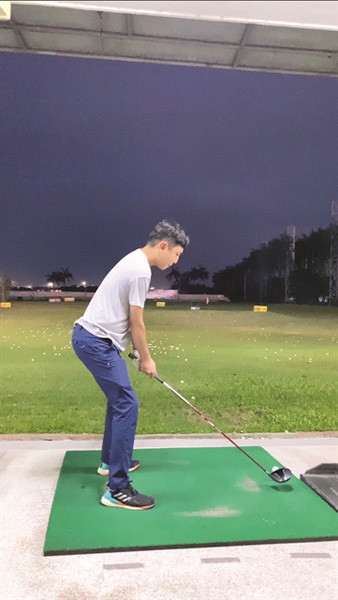
“South Korea is the biggest tourism market of Vietnam, and is also the biggest golf tourism market,” he noted. “I believe that more South Koreans will come. If someone says they cannot find a place to invest in Vietnam, they must be wrong. They just simply haven’t found the right place.”
Source: Vietnam News